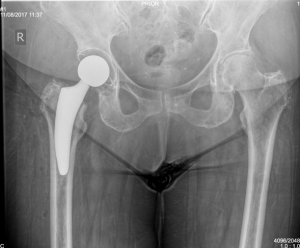
Hip replacement is major surgery, requiring a careful and considered approach to ensure the best and speediest path to recovery. Regardless of what stage you’re at – whether you’re pre-operative and considering hip replacement, a few days out of the hospital or several weeks into your recovery– you’ll most likely have a lot of questions. Dr David Slattery wants to make the hip replacement surgery recovery process as streamlined as possible for every patient, ensuring that they fully understand what they need to do at each stage of their recovery to achieve their optimal health outcomes.
To help you more fully understand your path to recovery after hip replacement, Dr Slattery has prepared this article addressing a couple of common questions he receives from patients during their recovery. Read on and be a more informed patient.
How does recovery from hip replacement work?
Recovery from hip replacement is similar to recovery from any other major surgery – your doctor and other healthcare professionals will work with you to develop a phased recovery plan that gradually returns you to your normal activities.
Dr Slattery uses enhanced recovery techniques to expedite your recovery, what used to be many weeks in hospital recovering is now only a matter of days. Patients are up and mobilising day 1 after the procedure with the assistance of physiotherapy, and a frame or crutches. From there you steadily progress to being independent with simple activities such as getting dressed, going to the bathroom and moving around the house. Your recovery involves constantly progressing activities and movements. Initially ankle pumps, leg raises, and heel lifts are done and then progressing to balancing and strength activities using resistance bands. These build up over time to independent walking without a gait aid. Most patients are off their crutches and walking well by 4-6 weeks post op. Overall, it may take up to six months to completely return to all of your previous activities – especially if you’re involved in strenuous activities such as running or cycling.
What kind of pain can occur after hip replacement surgery?
If you’ve previously had arthritic pain in your hip, it’s likely to be greatly reduced or eliminated after the surgery, but surgical pain can persist for some time afterwards. Patients report different levels of post-operative pain after total hip replacement. Dr Slattery will be able to advise you on the most suitable course of action to manage surgical pain during your recovery. Patients may require either over-the-counter or prescription painkillers during this period – this will be discussed with by Dr Slattery during your post-operative consultations.
Is recovery different if this is my 2nd hip replacement surgery?
Recovery after revision surgery for a total hip replacement can take longer due to a range of factors. Other than the extra time required, recovery after a second hip replacement does not differ significantly in mechanism. Like your first time, you’ll be prescribed a series of exercises to do, be given instructions for what positions and activities to avoid and be provided with crutches or a walker to assist you once you’re capable of walking.
If you have any further questions about your recovery, Dr Slattery is available for consultation. Call our rooms at Glenferrie Hospital on 03 9819 6934 to book an appointment.


